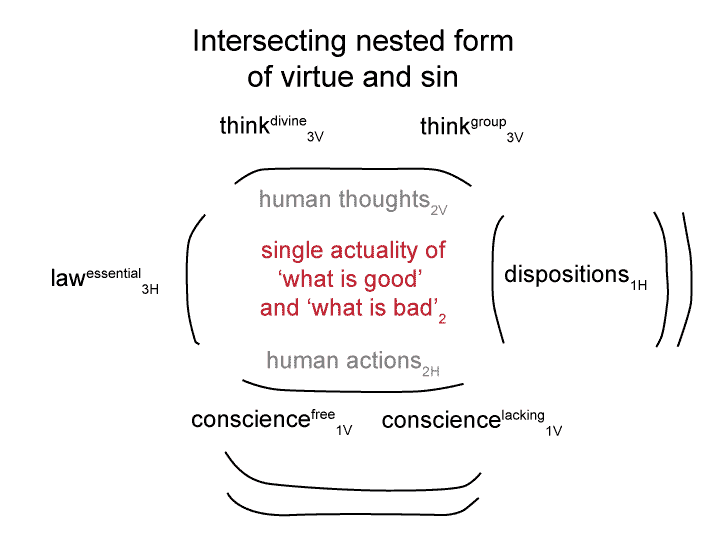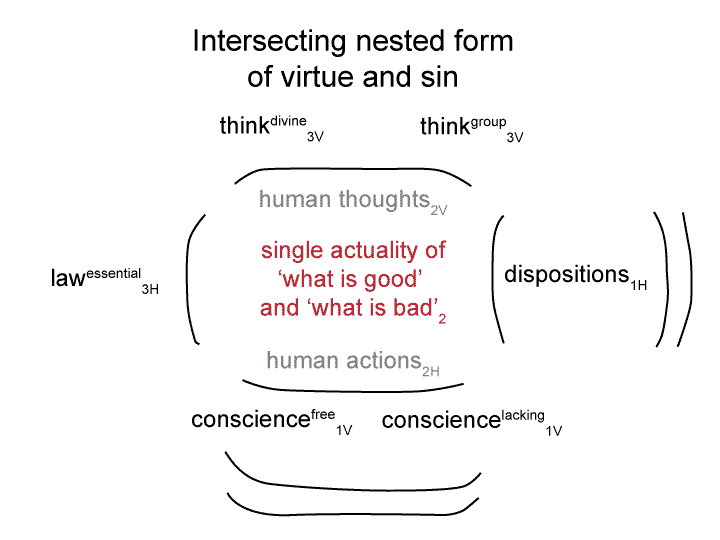Man and Sin by Piet Schoonenberg (1964) 2.3 TP
Summary of text [comment] pages 83 and 84
[I compare the intersecting forms of the thought experiment where I choose ‘something’ and the message underlying the word “religion”.
I find that something that I may choose1V parallels consciencespecified1V.
I feel that I should label this parallel: Free will.
Perhaps the word “parallels” is insufficient.
How about complements or resonates with?]


